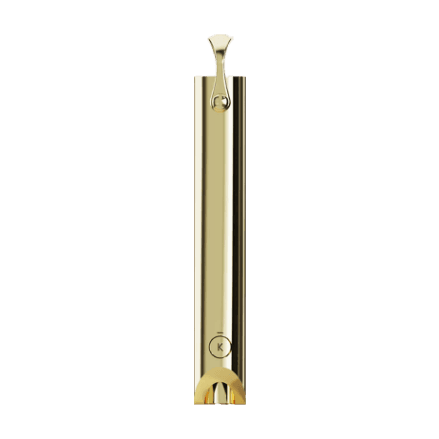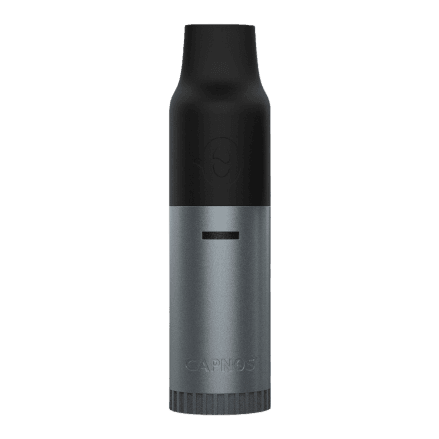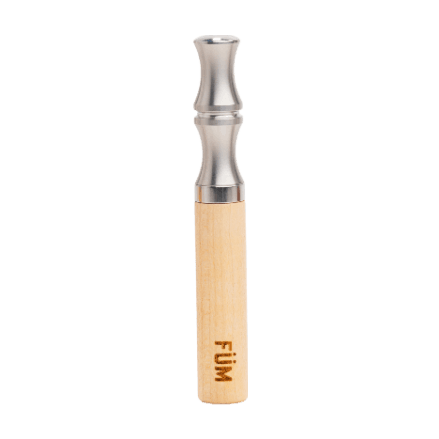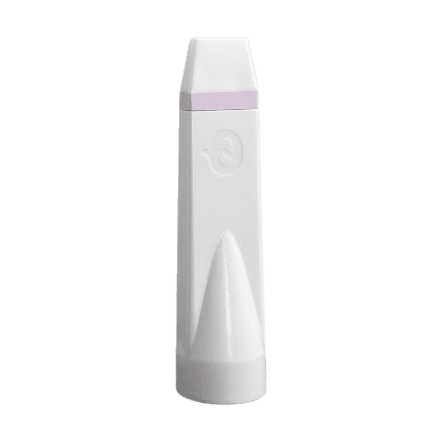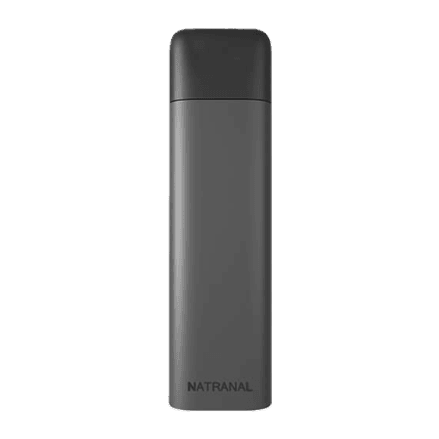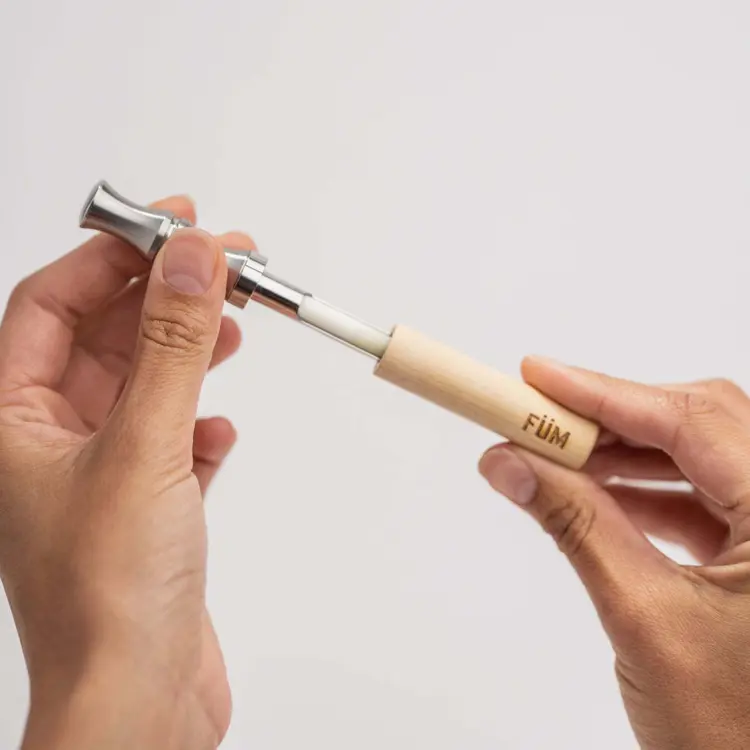Quitting vaping can be a daunting task, especially for those giving up nicotine entirely. While it may be beneficial to taper off one’s usage gradually, many go the cold turkey route. If opting for the latter, a flavored air device may alleviate some of the anxiety and oral fixations that often coincide with cessation.
This list covers some of the best quit-vaping products on the market. Note that we are not including non-nicotine vapes but rather devices that have no electronics (or nicotine) whatsoever. Keep reading to learn what options are available and how they work.
Types of quit-vaping products
Over the past few years, countless quit-vaping products have hit the market. If you’re a current vaper, chances are you’ve seen the ads on social media; they’re practically unavoidable. It’s a growing industry with a wide variety of seemingly unique products. But if you take a step back, you’ll find that most vape alternatives fit into three distinct categories:
Flavored air devices
Also referred to as: flavored air vapes, air vapes, pressurized air inhalers, fake vapes
These products function precisely as the name implies: users inhale through a mouthpiece, and the air is “flavored” by aromatics (commonly essential oil-saturated wicks).
Technically, air vapes are not actually “vapes” at all since they have no electrical components and do not vaporize anything, which is why some refer to them as “fake vapes.” However, the designs and flavors are often similar to vapes, and some products even offer familiar features like adjustable airflow.
Flavored air vapes were designed to serve as behavioral aids. They mimic the hand-to-mouth ritual of vaping (and smoking) to help manage oral fixations. Theoretically, the flavors and aromas may also reduce cravings, but users should temper their expectations. The taste of essential oil-infused air is usually mild and delicate, incomparable to flavored vapor.
Controlled breathing aids
Also referred to as: breathing necklaces, anxiety necklaces, whistle necklaces, meditation necklaces
Vapers and smokers often deride breathing necklaces due to their undeniable simplicity. They have no notable features, moving parts, or flavors. They’re just small metal tubes worn on a chain around the neck (bracelets are also available). Users breathe through them using a specific technique:
- Breathe deeply through the nose and fill the lungs with air
- Pause
- Slowly exhale through the device
- Repeat
While it may seem like a gimmick, some evidence suggests that controlled breathing may benefit psychological health and well-being. The effects may include emotional control, reduced cortisol levels, slower heart rate, decreased anxiety, stabilized blood pressure, relaxed muscles, and more.
It’s worth noting that breathing necklaces were not specifically designed to be quit-vaping products, even if they are sometimes marketed that way. Their foundational purpose is to assist in mindfulness and anxiety control. However, controlled breathing may alleviate some of the anxiety and physical distress caused by nicotine abstinence. Also, like flavored air vapes, breathing necklaces replicate the familiar hand-to-mouth behavior of vaping and smoking, which may help to satisfy oral fixations.
All-natural vapes
Also referred to as: vitamin vapes, personal aromatherapy diffusers, portable aromatherapy devices, nicotine-free vapes, healthy vapes, nicotineless vapes
All-natural vapes with no nicotine have been surging in popularity as of late, partially due to clever marketing. Let’s be honest: a “personal aromatherapy diffuser with all-natural ingredients” sounds much healthier than a “nicotine vape.” And because they do not contain nicotine, they are not bound by the same regulations and advertising restrictions.
The reality is that these products are vapes. They utilize the same technology, contain most of the same ingredients (including vegetable glycerin and propylene glycol), and vaporize a liquid. The main difference is that all-natural vapes substitute vitamins or essential oils for nicotine and flavorings. So, it would be more accurate to call them “quit nicotine products” than “quit vaping products,” which is one of the reasons we opted not to include them in this list.
Do air vapes work?
Most vape alternative manufacturers do not make smoking/vaping cessation claims; in fact, many state that their products are not intended for such purposes. While this is almost certainly for legal reasons, it sends a mixed message since the marketing often has a resounding quit-vaping message.
There are no studies on the efficacy of these products for smoking or vaping cessation, and the FDA has not approved any of them for that purpose.
Despite the lack of studies or cessation claims, there’s no denying that vape alternatives have helped some people quit vaping. Does that mean they’ll work for you or that they’re superior to nicotine replacement therapy? No. However, many of these products seem to pose some potential value:
- As previously mentioned, most quit-vaping products address the behavioral routine (the hand-to-mouth ritual) that is often difficult to break. Mimicking that action with a “fake vape” may foster a smoother transition.
- Distractions are often necessary to eradicate an oral fixation. My grandfather, for example, consumed copious amounts of hard candy when he quit smoking; others bite their nails, chew bubblegum, or find themselves constantly snacking. For some, the mouth just needs to be actively doing something, and most vape alternatives provide that.
- Nicotine abstinence can be punishing to the mind and body. Controlled breathing—with or without a breathing necklace—is a promising (but unproven) method of mitigating withdrawal symptoms.
Are personal aromatherapy diffusers healthy vape alternatives?
The only “healthy” vape alternative is breathing fresh air. A more appropriate question is, “Are personal aromatherapy diffusers healthier than nicotine vapes?” Unfortunately, the answer is unclear.
Again, most of these products are essentially vapes with vitamins, essential oils, or natural flavors instead of nicotine and flavorings. Despite their overt, wellness-focused branding (“natural,” “organic,” “plant-powered,” etc.), one should not consider them risk-free since they still involve inhaling foreign substances.
Ripple all-natural vapes
Ripple+ vapes contain all-natural flavors, plant extracts, vegetable glycerin, and propylene glycol (no essential oils). The devices are reversible: users can inhale from one end (like a vape) or blow through the bottom and diffuse vapor into the room. Whether the natural ingredients are safer to inhale than those found in standard vapes has not been determined.
MONQ essential oil vapes
MONQ vapes contain various essential oils suspended in a glycerin base. Interestingly, their website instructs users NOT to inhale into the lungs but into the mouth and out of the nose. This may be because no studies have investigated the potential harms of directly inhaling essential oil vapor. More research is needed, but here’s what we do know:
- Some essential oils can transform into dangerous compounds when heated to high temperatures.
- Even household essential oil diffusers can release hazardous chemicals, sometimes contributing to respiratory problems.
- Approximately 80 essential oils are recognized as potential contact allergens.
We also don’t know if vaping essential oils or vitamins offers any actual health benefits, so users may be introducing potential harm without receiving any reward (aside from nicotine abstinence).
Is vaping healthier without nicotine?
Despite the common misperception (likely due to its association with combustible cigarettes), nicotine itself is not carcinogenic. On the contrary, it may offer various cognitive and physical health benefits, such as increased focus, memory enhancement, increased metabolism, and improved reaction time. Nicotine has also shown promise as a treatment for symptoms of Alzheimer’s disease, ADHD, Parkinson’s disease, and schizophrenia.
But there are downsides, too. Nicotine is addictive, and any dependence can have negative mental health consequences. It can also temporarily increase blood pressure and heart rate (much like caffeine), which poses a more serious risk for those with serious heart conditions. Other potential side effects include headaches, fatigue, bruxism, and impaired wound healing.
Nicotine certainly isn’t the evil many suggest, but its disadvantages may impact the health and well-being of some users. If you’re hoping to break the dependence while continuing to vape, nicotine-free vapes are readily available. Note that the best way to mitigate withdrawal symptoms is to taper down your nicotine strength slowly.
Are flavored air vapes with essential oils safe?
Although flavored air vapes like Capnos, Natranal Puffer, and FÜM contain essential oils, no heating occurs. When inhaling, the air passes by the wicks and drags some flavor along for the ride. A similar experience can be had by turning off your vape and inhaling through it as you normally would. You’ll probably notice slight notes of the e-liquid, even if it’s not a full-flavored experience.
Because vaporization does not occur with air vapes, there is no concern about the toxicity of essential oils when they reach certain temperatures. However, that doesn’t mean these products are risk-free. Some users may experience allergic contact dermatitis if certain essential oils touch the skin. If you are sensitive to essential oils, please do not use or handle these products.
It’s also worth mentioning that some manufacturers of flavored air vapes (including FÜM) advise against inhaling into the lungs. Much like the MONQ instructions, users should breathe into the mouth and out of the nose. Doing so does not eliminate the risk of contact dermatitis, but (theoretically) it may reduce the chance of developing respiratory issues.
The Freemax REXA PRO and REXA SMART are highly advanced pod vapes, offering seemingly endless features, beautiful touchscreens, and new DUOMAX pods.
The OXVA XLIM Pro 2 DNA is powered by a custom-made Evolv DNA chipset, offering a Replay function and dry hit protection. Read our review to find out more.
The SKE Bar is a 2 mL replaceable pod vape with a 500 mAh battery, a 1.2-ohm mesh coil, and 35 flavors to choose from in 2% nicotine.
Because of declining cigarette sales, state governments in the U.S. and countries around the world are looking to vapor products as a new source of tax revenue.
The legal age to buy e-cigarettes and other vaping products varies around the world. The United States recently changed the legal minimum sales age to 21.
A list of vaping product flavor bans and online sales bans in the United States, and sales and possession bans in other countries.
Find Your Perfect Product
Navigate our vape database precisely by customizing your filters. Find products tailored to your needs with options like price, category, and more.
Sort by:
Empowering Vapers Worldwide
As a recognized authority in the vaping world, Vaping360 draws over a million monthly visitors to read our in-depth reviews and guides, breaking news, and insights on the latest vaping products and events impacting the vaping world. Our mission is to achieve a healthier, smoke-free world.
